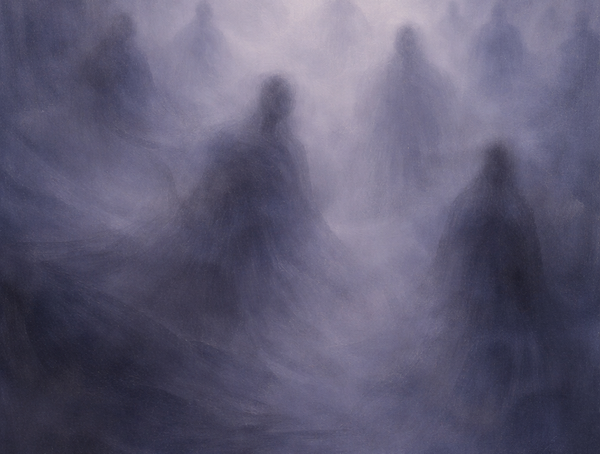The Double-Slit Experiment and the Question of Thought
Heavens was seen as a world of many beings, not a uniform sterile consciousness.

Heavens was seen as a world of many beings, not a uniform sterile consciousness.


The double-slit experiment is often taken as evidence that consciousness or observation plays a role in shaping physical outcomes. Anthroposophy would say: yes, but one must be careful. It is not our everyday thought, in its abstract or subjective sense, that collapses a wave into a particle. Rather, what we call "thought" is already a participation in a larger cosmic thinking that permeates existence. The experiment reveals that matter is not primary—it behaves indeterminately until formative activity (perception, consciousness, intention) enters.
So: the experiment points us to the threshold where reality is not fixed substance but becoming—and this becoming is bound up with cognition itself.
In anthroposophy, thought is not produced by the brain but is an activity of the spiritual world, which the human "I" can take hold of. Steiner speaks of "living thinking" as participation in the creative Logos—the Word through which the world was made. If the world is born of the Logos, then yes, thought (not human opinion, but divine-spiritual thinking) is the genesis of existence.
Thus it is rather the following philosophical intuition which is correct: reductionist materialism refutes itself, because it must use thinking to claim thought is derivative. But thinking is the ground of its own activity. It shows itself to be prior.
The materialist story—that we are clever animals shaped by chance—rests on an illusion: that matter is primary and thought arises secondarily. But if thought precedes matter, then our being is not the end-product of random mutations. Instead, our biography belongs to a purposeful cosmic drama. Anthroposophy would call this: humanity is created, but not in a mechanical sense. We are co-created beings, meant to awaken to the source of thinking itself, which is divine-spiritual.
So the choice is not merely between "created being" versus "tadpole evolution." Anthroposophy shows that evolution itself is the unfolding of a thought-plan, a wisdom-filled process. The human being is the I-bearer—capable of realizing that thought is not epiphenomenon but essence.
If thought is the first principle, then all creation is thought-filled. This leads us to the concept of the Cosmic Word (Logos)—the primal Thought-Being who creates in wisdom. Anthroposophy identifies this being with Christ: the Logos who was “in the beginning.” The double-slit experiment, rightly understood, is a small mirror of this truth. Physics stumbles upon a threshold mystery: the world is not made of matter but of creative thinking.
So yes, the experiment does undermine materialism. But anthroposophy helps us articulate why: not because our little human thoughts magically create photons, but because thought itself is the cosmic principle of reality, and we participate in it. This means the world is born of Being, not accident.
And in fact, the world is not born of mere "Being," that in itself would again be reductionism. While if the world is complex, than why would the world of Being —or consciousness— be complex as well.?
Western Civilization suffers from 200 years of monotheism, while this may well have come into being out of historic and evolutionary necessity. But as monotheism implied the importance of a Holy Trinitarian principle, allowing to contract focus, what is lost is the complexity and multiplicity of the spiritual realm.
While even up to recently, Heavens was seen as a world of many beings, not a uniform sterile consciousness, as the highest form humans can conceive of. Mere thought can't see this multiplicity; therefore Imagination has to come in..








